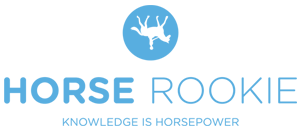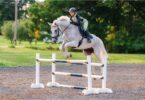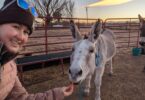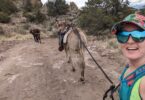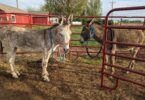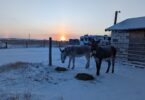Riding as an adult amateur can simply be described as one big balancing act.
You’re trying to keep about ten balls in the air at any one point in time. Picture this, you woke up at 5.30 to get in a quick workout, before rushing home to shower and feed your dog. You then head off to work for the better (or worse?) part of the day and then head out to the paddock or barn for a ride and to put your pony to bed. After riding, it’s back home to cook dinner and maybe squeeze in some quality time with your partner.
But of course you don’t need to imagine it, because there is a good chance this is your life!
It can be equal parts challenging and rewarding. The constant juggling can be frustrating, especially if you or your horse has an injury and you aren’t able to ride for a period of time. But those moments where something clicks into place, or you have a great ride, make it all worth it.
For me, successfully balancing these competing demands is all about prioritising and being smart with the time that you do have available. It’s not easy, but it can be done.
But Don’t Just Listen To Me
I wanted to know how other riders managed the great balancing act of horses. So I called on my fellow equestrian bloggers, Laura of Wanna be in the Ribbons, Sara of Ginger Pony Land, Darielle of No Bucking Way and Gaelann of Orchard Holdings.
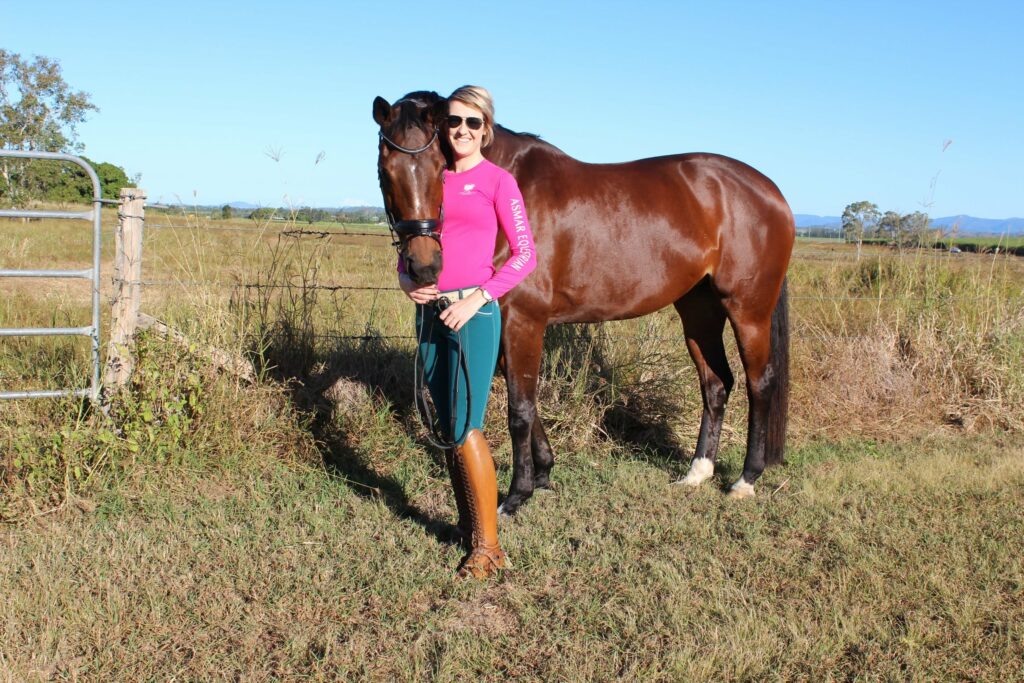
Unsurprisingly, we were all balancing similar demands:
- Work – Now this one is not surprising because as Adult Amateur’s, we need a way to fund our hobby/passion/obsession
- Horses and Riding – For most of us this is the whole reason we exist
- Health and Fitness – More and more riders are recognising the importance of being physically active and improving fitness out of the saddle. For some this means going into the gym, for others it means running and pilates
- Family and Friends and a Social life
- Rest – Do we even know what this is? But in all seriousness in addition to fitting in all the demands of our lives we also need to take time to rest. Why? Rest is important for allowing our bodies to repair, refuel and recover
As we delved into the practicalities of how we make it work, a few themes emerged.
Organisation Is Key In The Balancing Act
For me one of the unfortunate realities of being an Adult Amateur is that some days I just don’t get to ride. But by being organised, I am able to avoid this most of the time. I have a pretty set schedule that I stick to, but outside of this lists are my best friend. Similarly, Sara, who rides mainly in online
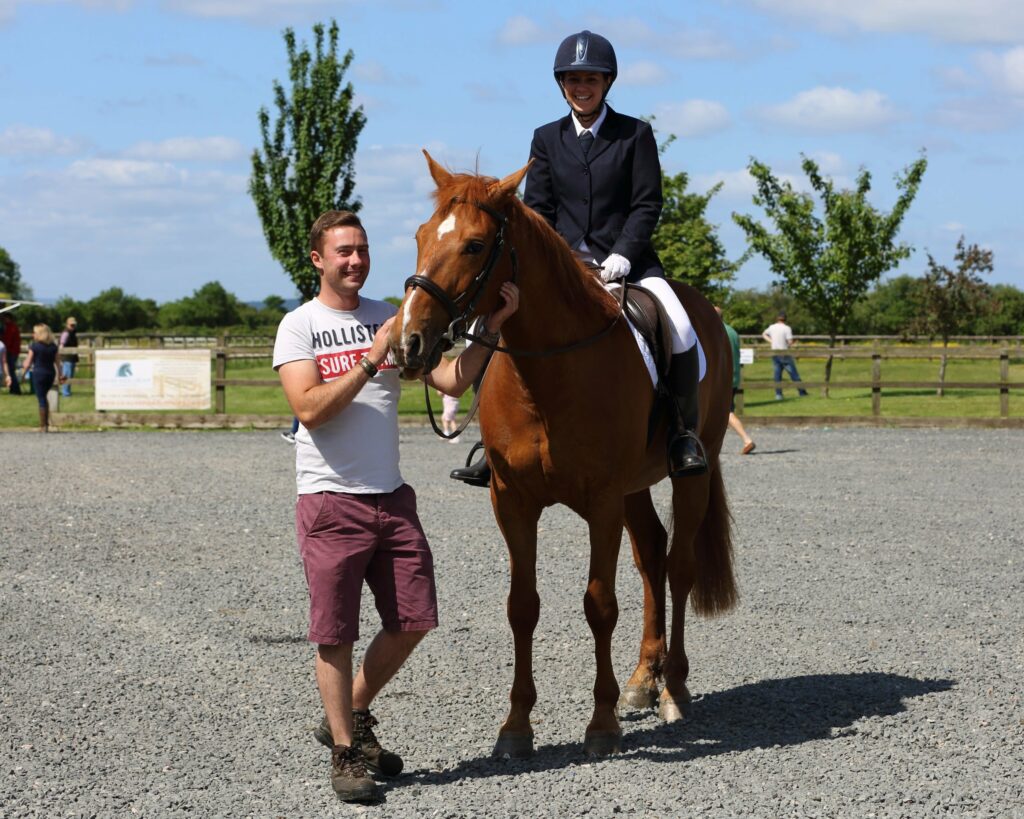
Sara with her husband and horse.
People talk a lot about organisation, but what does it actually mean? I think maybe Laura says it best, ‘I know what I am doing morning, noon, and night every day for the week ahead, otherwise I wouldn’t fit it all in! Having a plan means I know what mornings or evenings I am going to ride, which days I am at the gym, what social plans I have and which days I am doing nothing (rare, but I try and have a little down time once in a while).’
Another aspect of being organised is understanding how much time you are realistically able to allocate to horses and riding and knowing how long things will take you when you are with your horse! Remember that we equestrians, tend to underestimate this just a fraction.
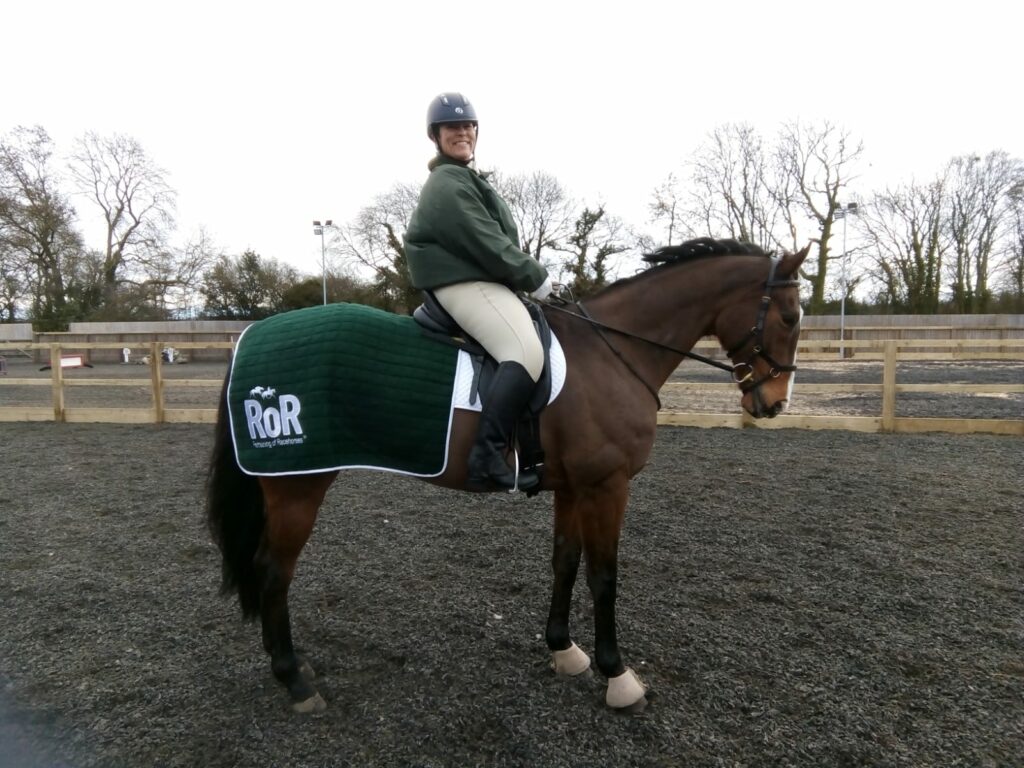
This is something that Darielle is well aware of, ‘Without rushing around the place when I go down to the yard, I tend to spend approximately 1.5 hours with my horse during the week, with it varying on the weekends as I have more time without being in work!’
Darielle also goes on to point out that it is useful to know what you are actually going to do once you get in the saddle,
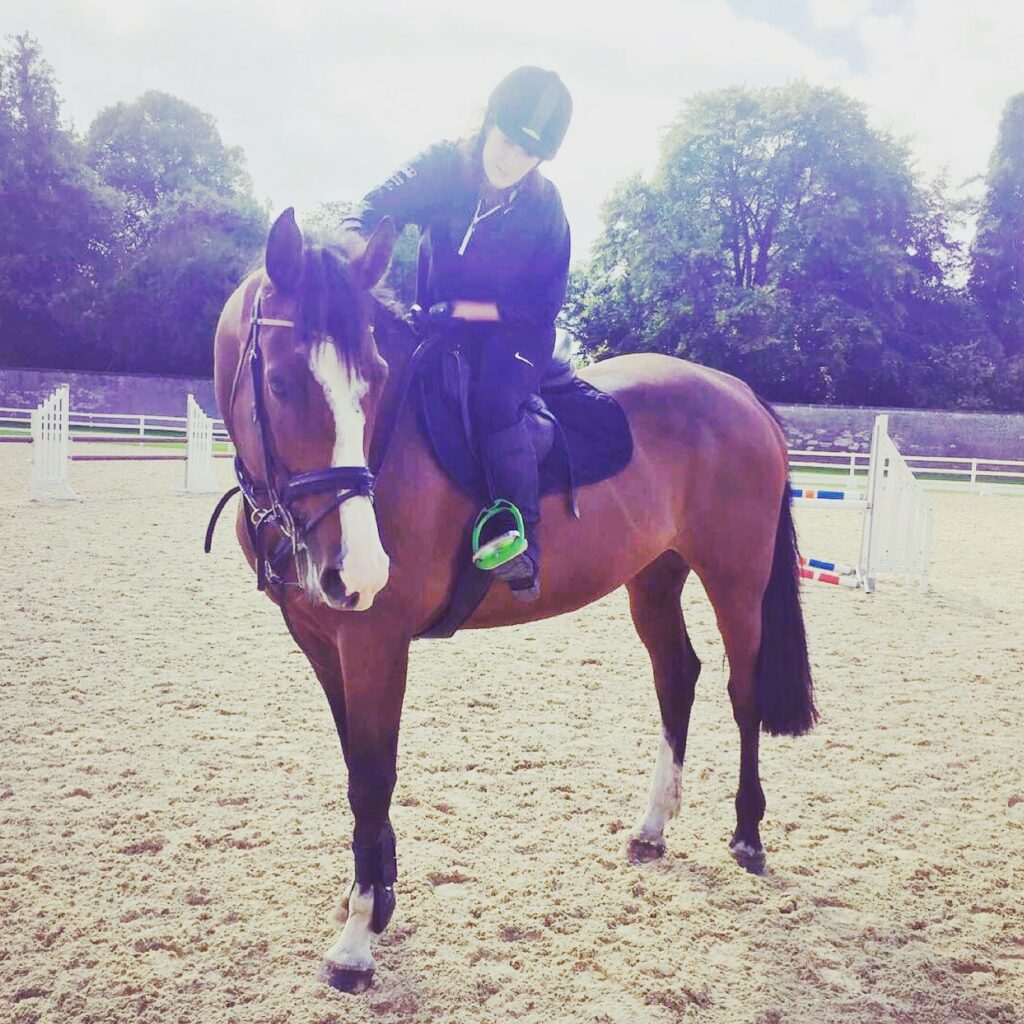
Darielle from No Bucking Way Blog with her horse Dante
Supportive Families
Darielle, Gaelann, and Laura also talked about the importance of having families who are supportive and happy to step in and help as needed. Whether that means looking after kids while you squeeze in some essential barn time, mucking out while you are travelling for work, or bringing your horse in for the farrier.
For some riders this enables them to prioritise their equestrian goals. I can certainly relate to this having a super supportive boyfriend who understands that when I say I’ll try to be home early that actually means 7:30, if he’s lucky!
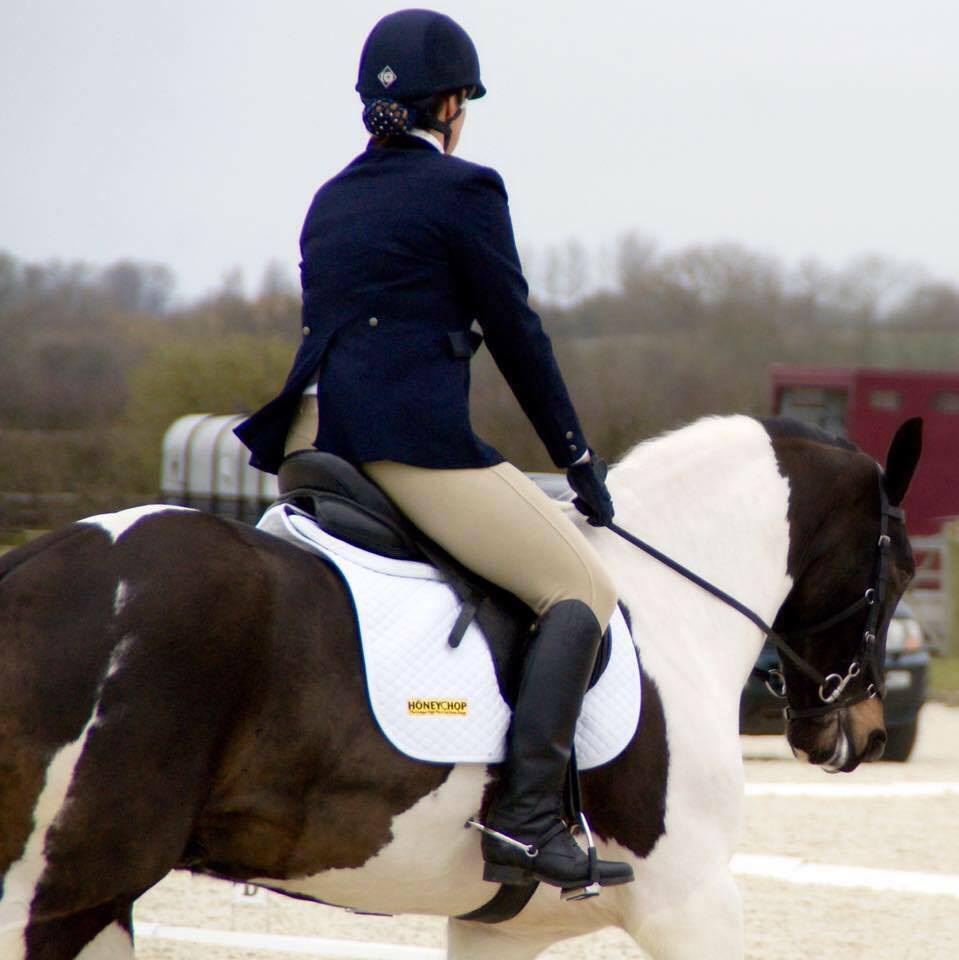
Laura Szuca and Mikey from Wanna be in the ribbons
Having a supportive family may also mean that you are allowed to take a show-cation or plan your holidays around horse events. Gaelann goes on a family trip to Cornwall once a year for a long weekend, sometimes she will have to adjust the holiday to the qualifiers she is doing, but rarely the other way round.
Something which I don’t think is talked about enough is the need to let go in some parts of your life. For me this is generally the house work.
My house is liveable, but it’s far from Instagram ready.
But Despite Our Best Efforts, There May Be Times When The Balance Has To Tip Away From Horses A Little
For some people, no matter how much organisation you do there needs to be a give and take, sometimes other things (like earning a living have to take priority). Darielle explained, ‘I have had to put a stop to venturing out, for the sake of it, every weekend to schooling shows with the horse.
You could leave the yard at 8am in the morning and not get home until 4pm! With that taking up the majority of the day, once I get home I am almost too tired to do anything else! And with having a young child at home it is not ideal to be going home with zero energy! For the minute, I work on what needs to be done with the horse, the plan is to aim on working towards a show. That way I can pinpoint where we have progressed and what we need to work on.’
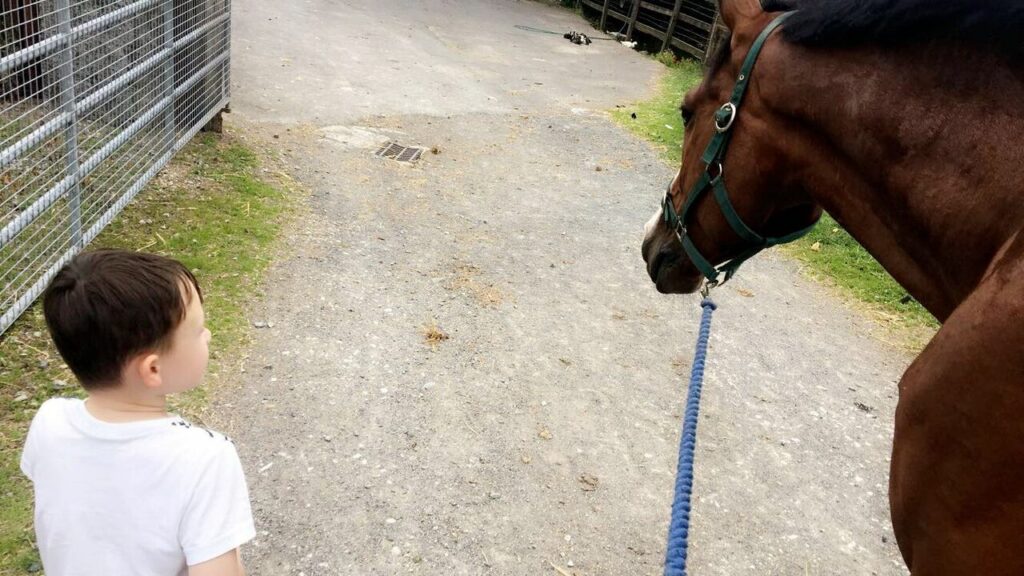
Darielle’s son
The Goals
So now that you know how much time you have to spend with your horse, you’ve organised yourself, and you’ve roped in your friends and family to help at home, the other thing that needs to be done is figuring out what your goals are.
I would argue that it is almost essential to ensure that whatever goals you set are realistic to the time you have available to devote to them. For Sara, this means adjusting the timescales and being realistic about how quickly she can achieve things like debuting at a new level in
‘In an ideal world I’d ride most days and I know we make much better progress this way, but at the end of the day, riding is my hobby, so I can’t always prioritise it above everything else in my life.’
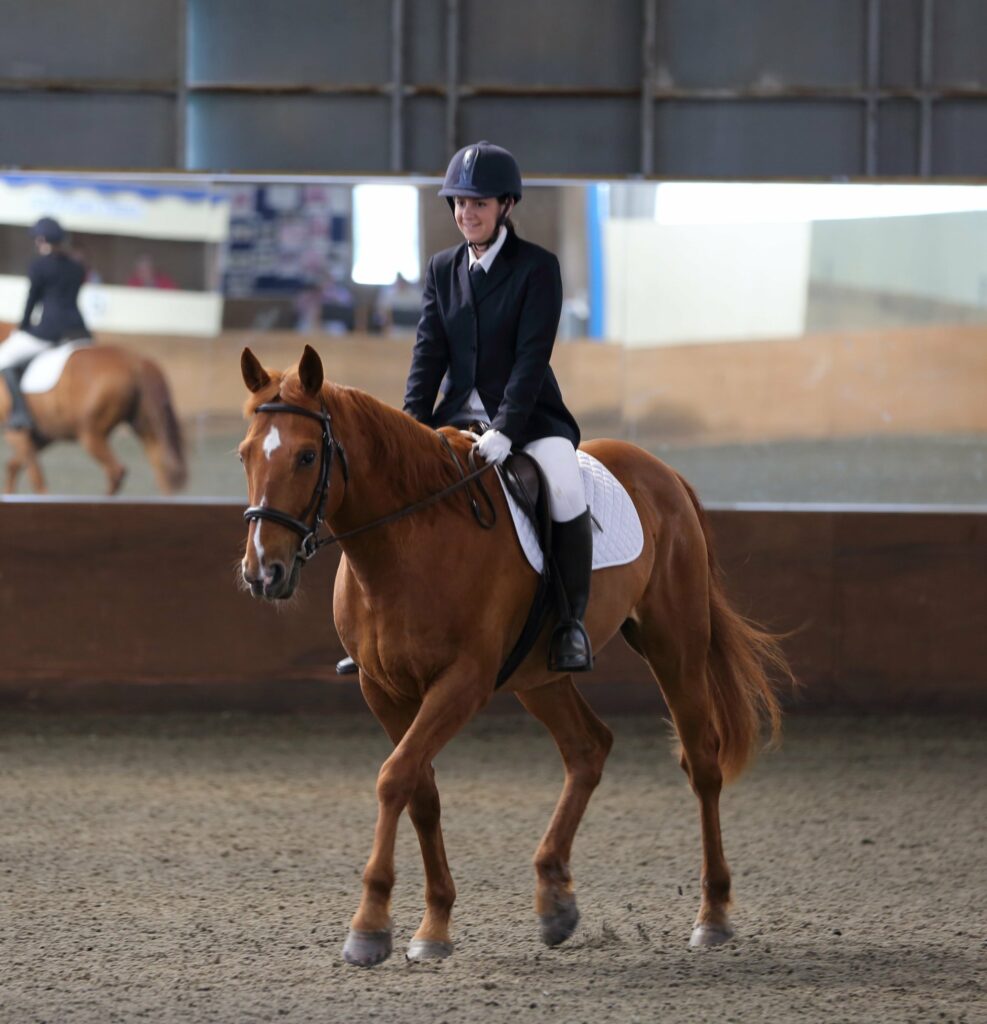
Sara from Ginger Pony Land with her horse Starky
Sometimes in the short term you may have to do a bit more juggling than usual. Laura explains that rather than compromising on what she is working to achieve, she will make adjustments to her timetable. “If I have a competition coming up, I will get up that bit earlier, ride that bit later, or pack a gym session and riding session into the same evening.
It means late nights or early mornings, sometimes having dinner on the go, but I am determined to do well when I do compete so won’t compromise my preparation.”
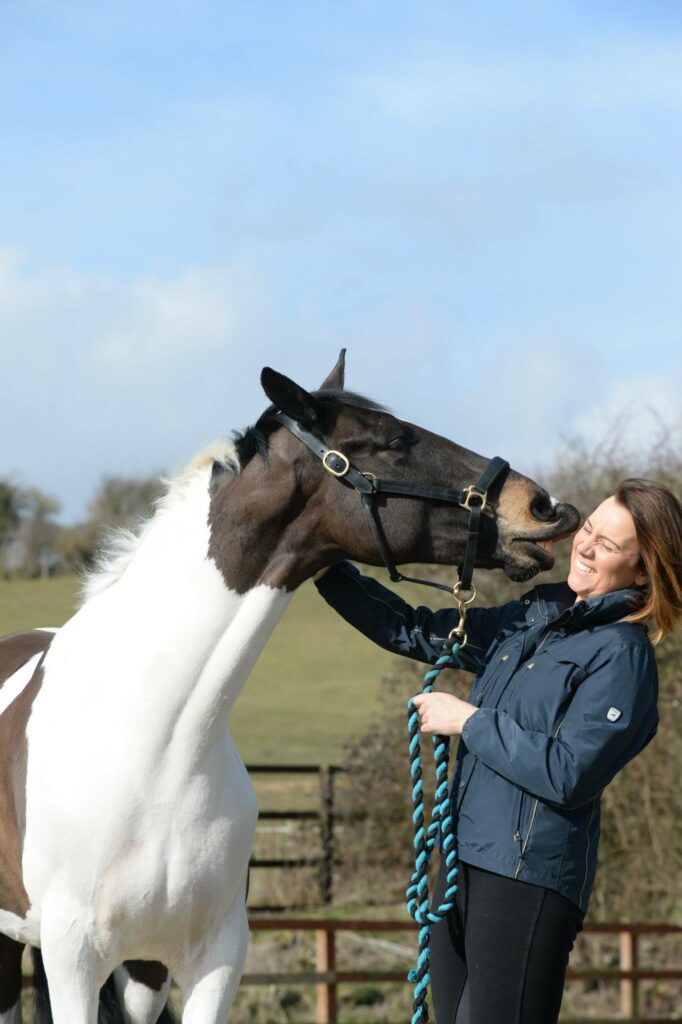
Laura Szuca
Further Reading
You can find more from these wonderful contributors below. If you enjoyed this story make sure you pin it or share it in your socials to help other people find it too!
Laura:
- https://wannabeintheribbons.wordpress.com
- https://facebook.com/WannaBeintheRibbons/
- https://www.instagram.com/wannabeintheribbons/
Darielle:
Sara:
Gaelann:
P.S. Enjoy this article? Trot on over to:
- 25 Tips to Take Your
Show Jumping from Average to Awesome - Horse Jumping Position 101: How to Get It Right
- Horse Jumping Tips Beginners Can Put Into Practice Today
- 10 Best Stirrups for Jumping Clear (And Staying Safe)
- 100+ Things to Pack for a Jumping Horse Show (Checklist)
- 4-Star Favorites: The 4 Best Cross Country Stirrups
- Horse Riding for Older Adults: Why It’s Never Too Late
